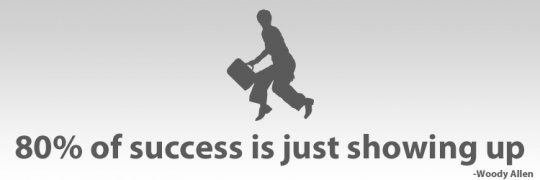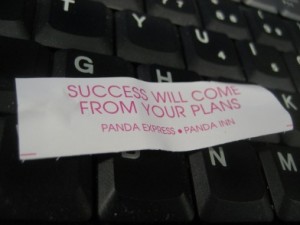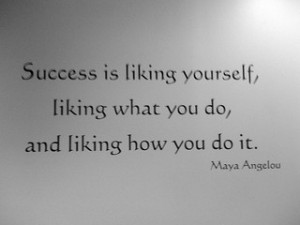How to Be A Successful Freelancer
For Emerald City Comic Con this year, George Rohac (Director of Operations at Oni Press, Freelance Guru, Wizard) and I got the band back together.
We put together a panel about the things we think you need to be a successful freelancer. And because we want to spread the news far and wide, I’m publishing all of the tips, tricks and secrets as this week’s post.
Our first piece of advice for the successful freelancer isn’t news if you read this blog: Negotiate!
The idea that you can’t be good at negotiating because you’re an artist is crap. You aren’t powerless; you do have negotiation leverage. You can get good jobs that pay well, are rewarding and support your goals!
But you can’t do any of that if you don’t negotiate. So try.
Know what you want and why you want it. Spend time to understand why making a certain rate or being able to use the work in your portfolio is important (hint: the answer is not “because”). Being able to articulate the “why” behind the things you want will allow you to be more creative about finding solutions in negotiations.
Practice Makes Perfect. It’s OK to be intimidated about negotiating, but it’s not OK to not negotiate because you’re intimidated. If negotiations make you weak in the knees, that’s OK: practice. Practice asking for discounts at stores; practice talking about why you want what you want; practice asking questions about what the other person wants. You don’t have to do everything perfectly all at once.
Fake it. Before a negotiation pump yourself up with a favorite song or by saying, “I’m awesome!” out loud. Your brain believes what it hears. So don’t tell your brain that negotiations make you nervous as all heck; tell it how awesome you are and how you can totally handle this.
One day I hope that even the greenest freelancer will know and practice our second piece of advice: Read the contract!
Contracts should make sense. They are stories that tell you who the main characters are, the plot of what they plan to do together and the alternative ending they’ll use if things go wrong. If you can’t understand those things when you read a contract, you need a better contract. Don’t be afraid to mark up a contract you get by crossing out the stuff you don’t like and adding in the things that you need.
Again: Practice. Practice improves reading comprehension so read a lot of contracts. There are some great resources out there like the contract creator at Freelancers Union that can help you get to know the basic structure of a contract and what certain sections mean. Don’t just read contracts when they’re given to you for a job, read them whenever you get the chance and you’ll eventually get better at reading them.
Lawyer Up. Does the contract not make sense and you’re not getting good answers? Lawyer up. Does it say “world wide, in perpetuity, in media now known or later developed”? Lawyer up. How do you find a lawyer? See if there is a Volunteer Lawyers for the Arts chapter or similar organization in your area or contact your State Bar to see if there are low cost services available in your city. Even better: ask your friends and colleagues! A personal reference is always best. Have you found a good lawyer? Let others know!
The third piece of advice is all about: Finding Quality Resources!
Know your timeline. When would you like to start selling your product, how much time would you like before that to review and organize the product, and what is your drop dead must have date? Put all of those dates on a calendar (along with any dates about work you still need to do to get the product ready for production) so you can see it all in one place. Manufacturers will have timetables for production based on what you want; knowing what timetable you need to meet before you talk with manufacturers will help you evaluate their quotes.
Vet companies before you commit. Someone else has done what you’re doing before and they probably have lots of opinions about their experience. Ask manufacturers or printers you’re talking to for references; customers they’ve had who were freelancers or who were asking for a similar product. Then call or write them and ask about their experience! The crowdsourcing of the internet can be helpful if you don’t get a list of references; you can also go old school and see if the company is registered with the Better Business Bureau.
Consider using a broker. Brokers are people who have business agreements with a number of different printers (usually overseas) and they do the leg work of getting quotes, dealing with order details, and making sure the product is shipped on time. Now, brokers get a percentage of the total business they bring to a printer so you might not get the very best pricing deal you could on your own, but the leverage you get by working through a broker can make up for the extra cash you’ll spend. If something goes wrong with your order at the printer and you’re handling everything yourself, you represent a small bit of business. If something goes wrong at that same printer and you’re working through a broker, they represent a whole ton of business and the printer now has a lot more incentive to jump to and fix the problem.
And finally Our Top Five Business Recommendations to be a Successful Freelancer!
1. Invoice with Incentives. I wrote a little post about this not too long ago. Make your clients feel good about the bill they’re paying by describing all the awesome work you did for them. Be sure to point out any work you did that you aren’t asking them to pay for. Offer discounts for paying faster than they’re required to pay.
2. Don’t reinvent the wheel. Just because you’re freelancing doesn’t mean you have to make up everything yourself. Ask friends and colleagues what they use for invoices, managing projects, mailing out merchandise and anything else you realize you have to do for work and don’t know how to do. The internet can be your friend by offering templates, but real people suggestions are always best. People who ask for advice about these things aren’t lame; they’re really smart (and good looking!).
3. Hire an accountant. Many freelancers are of the mistaken belief that they don’t make enough money to justify hiring an accountant. Hiring an accountant is not about how much you do or don’t make, it’s about how complicated your taxes and income are. Guess what? As a freelancer, your taxes and income are complicated! An accountant can help you keep more of what you make and avoid taxation pitfalls. If you’re thinking of doing a Kickstarter, Indie Go Go or any other crowdsource funding project this year, please please please talk to an accountant who has experience advising freelancers before you start fundraising.
4. Participate in your community. Being active in the community in which you work is fun, it’s a great way to learn and it will help you find more jobs. When more people are active in talking about work, what they do and how they do it, the community is better for it. It helps good ideas, clients and methods make the rounds faster and it can put the kibosh on bad negotiation practices that clients try to pull. So participate! Network, go to local functions and encourage others who are doing what you do.
5. Commit the following phrase to memory and use it often: “I don’t know; I’ll have to think about that and get back to you.”
Still hungry for more? If you’re headed to GeekGirlCon this year, I’m teaching a panel on how ladies can flex their business muscles and be negotiation ninjas. If you’re in Seattle in August, check out the con & come to the panel!
Featured image by kevinthoule via Flicker.com.
Categories: Good Advice








Reblogged this on flacklist.